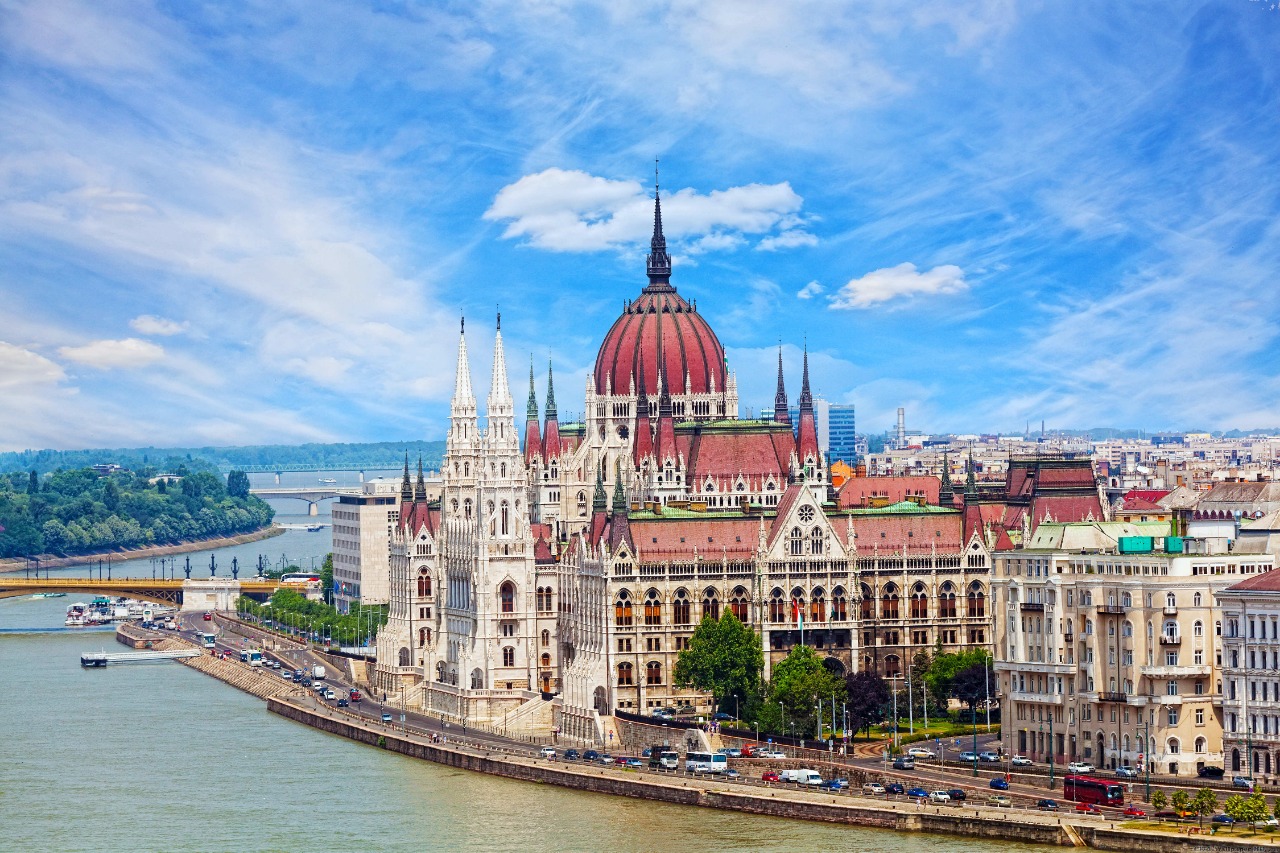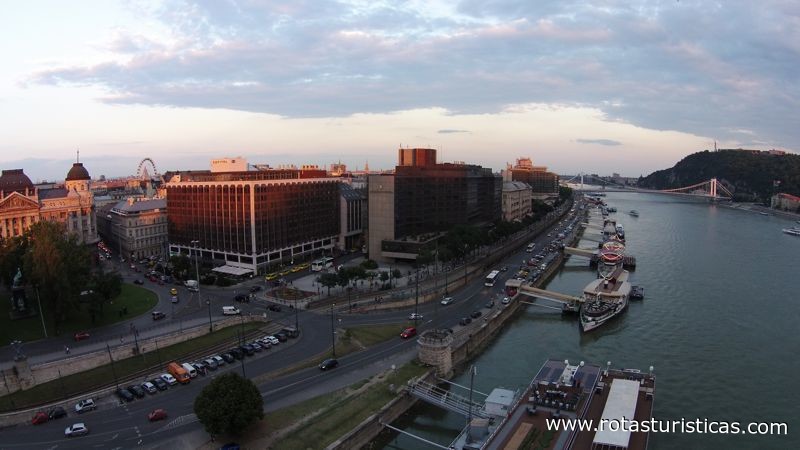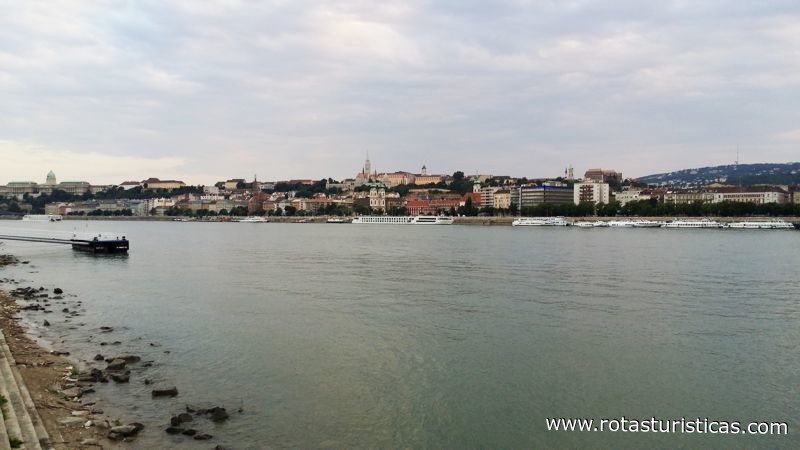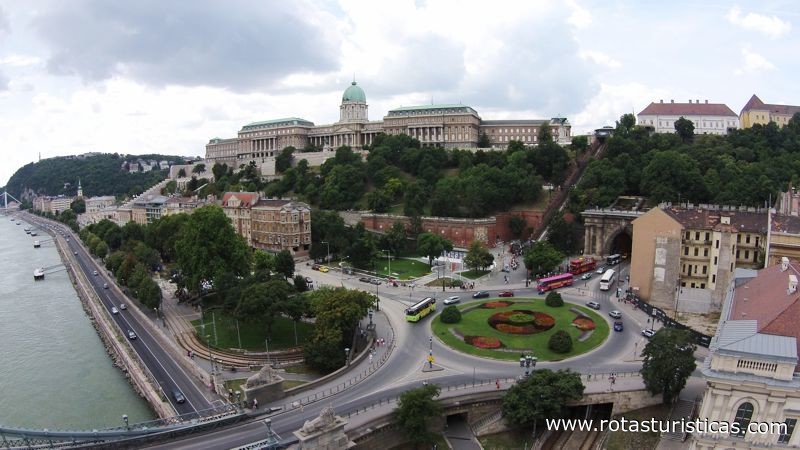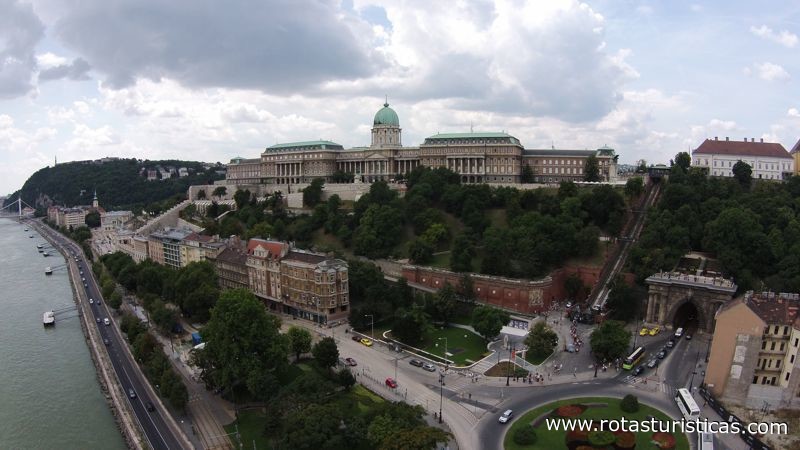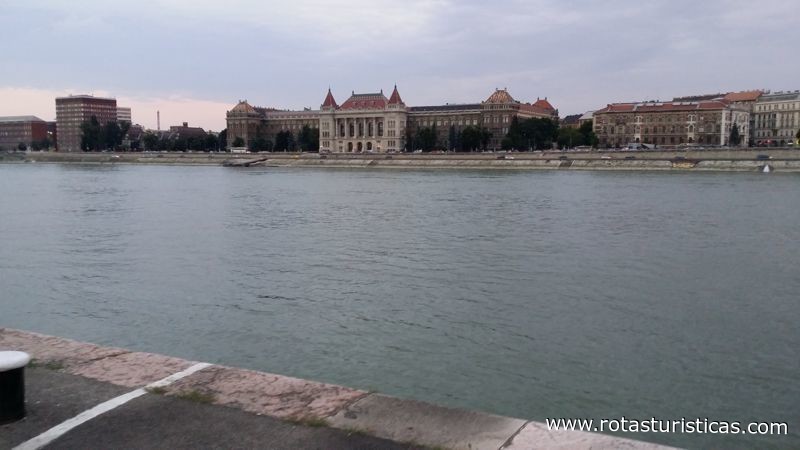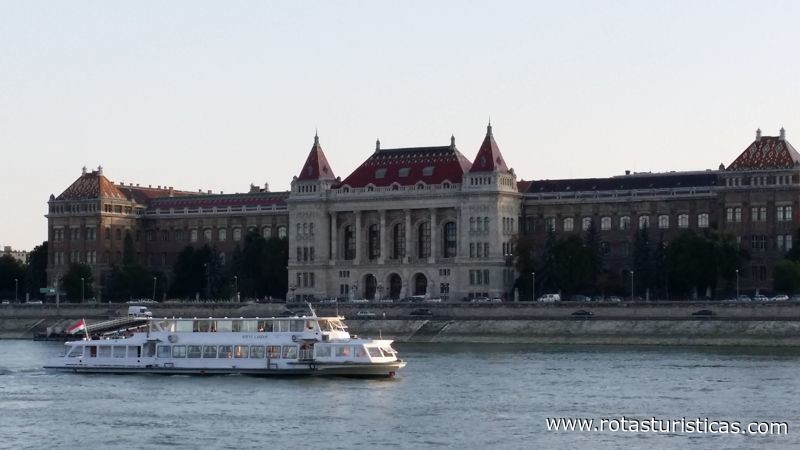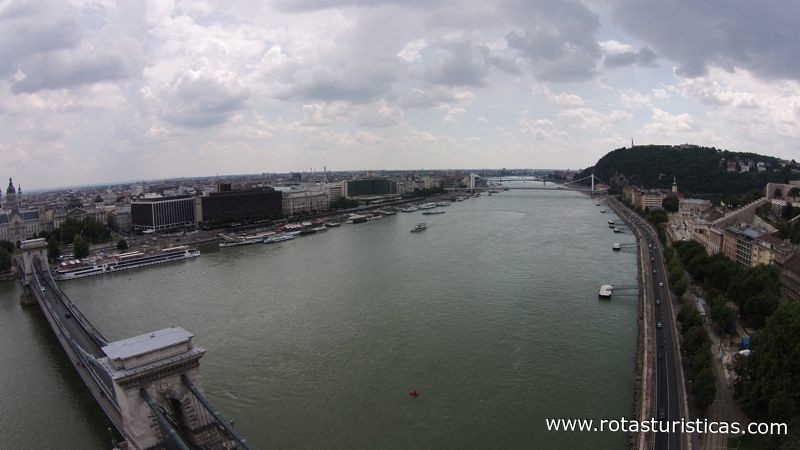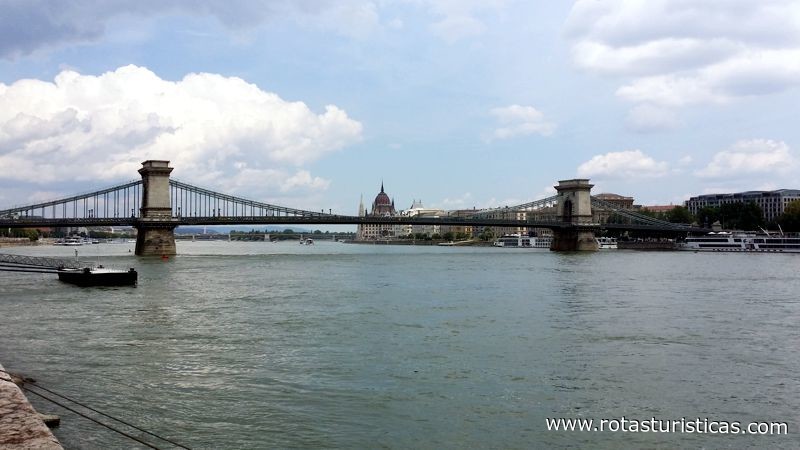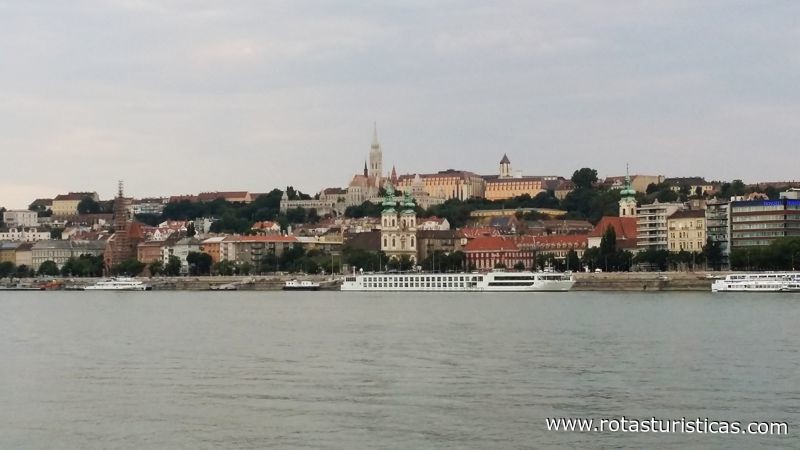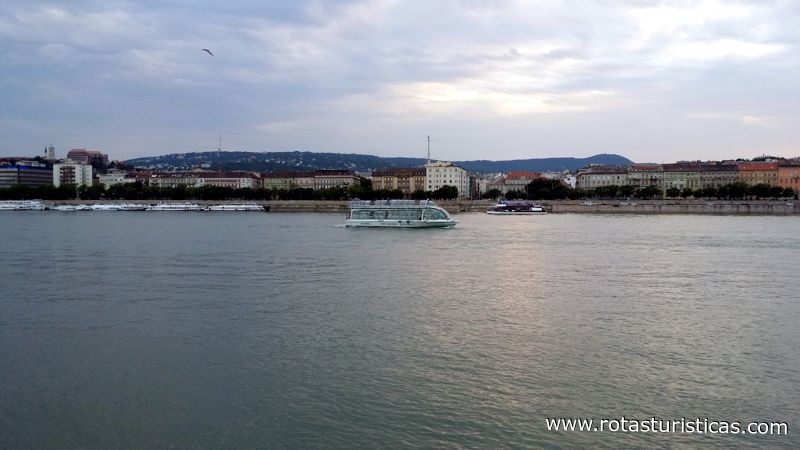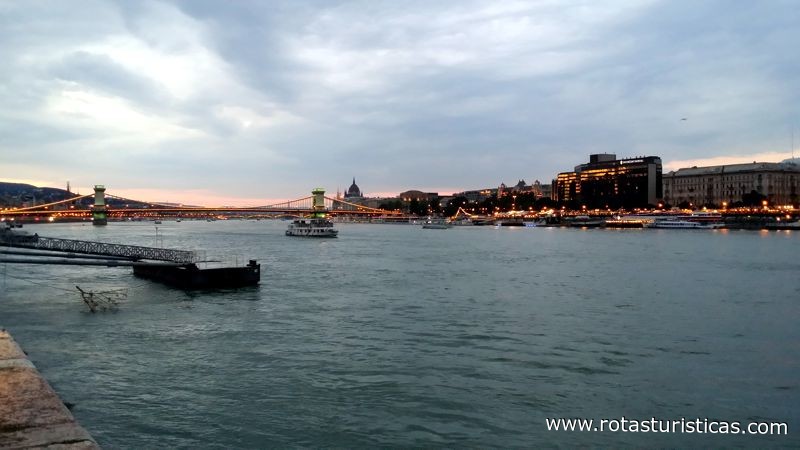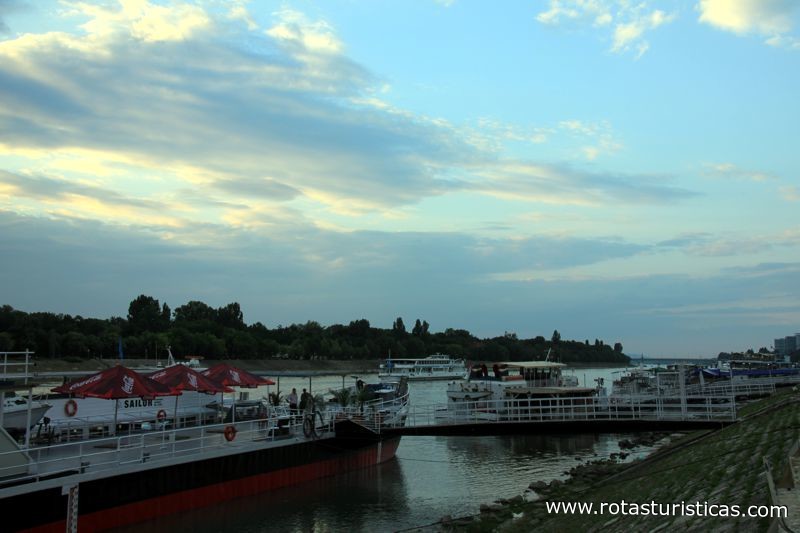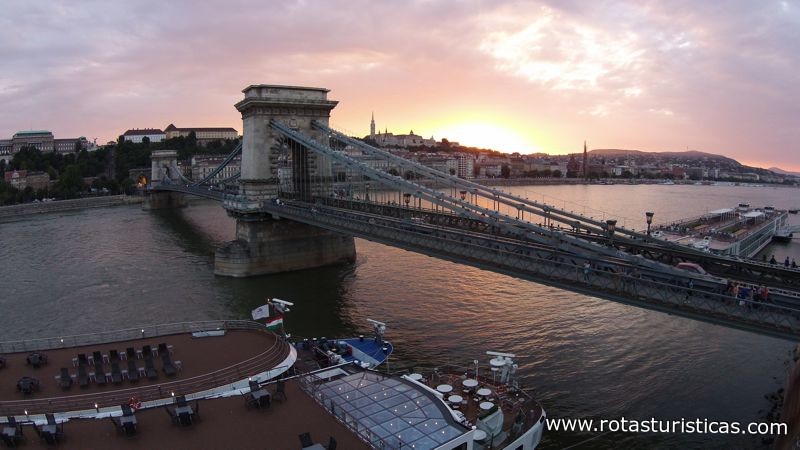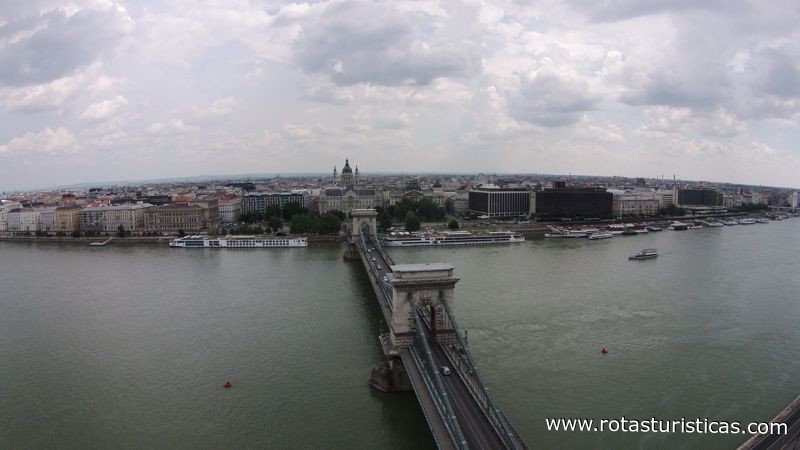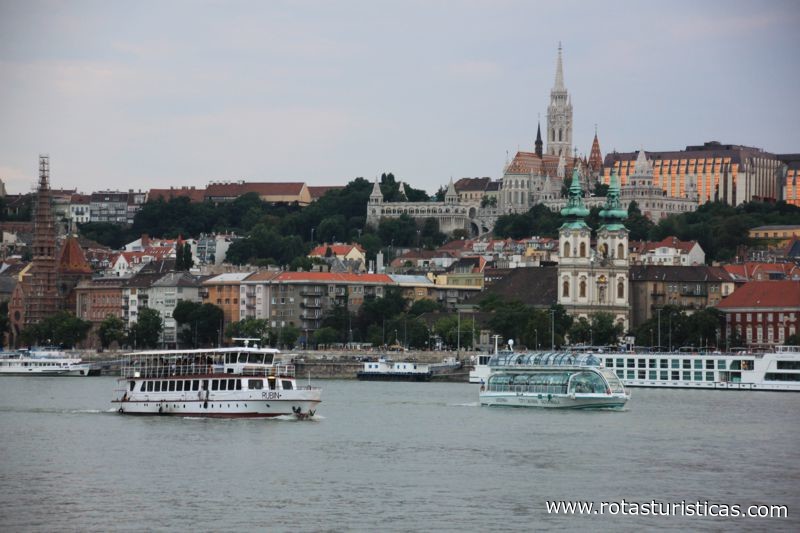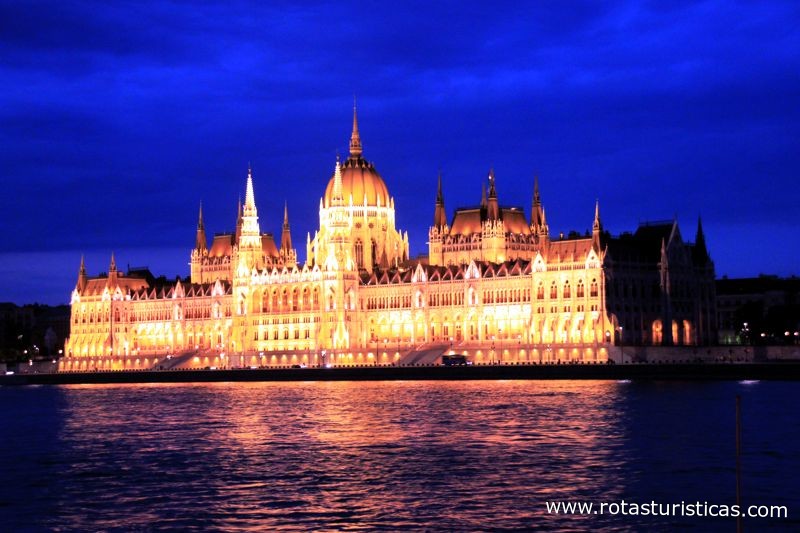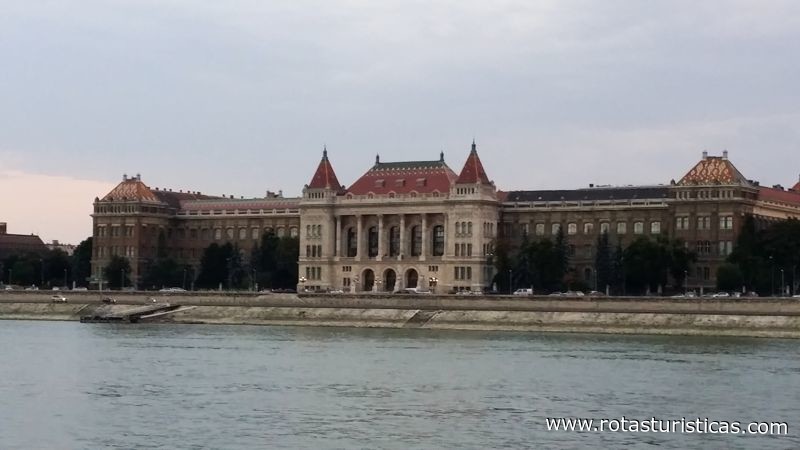Pictures of: Budapest
Location map
Airports
Hotels and other Accommodation
Golf Courses
What to visit
Where to Eat
Consulates & Embassies
World Nomads
The Travel Insurance with the largest coverage

The Travel Insurance with the largest coverage

Budapest
Budapest is the capital, the most populous city and main financial, corporate, mercantile and cultural center of Hungary. It is the sixth largest city in the European Union and has received the global alpha city classification by the Globalization and World Cities Study Group & Network (GaWC). It is located on the banks of the river Danube. Budapest was founded on November 17, 1873 with the merger of the cities of Buda and Ouda on the right bank of the Danube with Pest on the left bank. Its inhabitants are called budapestinos.
Tourism
The architecture along the Danube shows the cultural richness of Budapest, Hungary
The buildings with lacy façades, richly ornamented with mosaic details, arabesques, oriental elements and large human figures intended to support the façades are the first of the beautiful and pleasant surprises of Budapest.
But all this is little, because the beauty of the city spreads everywhere, along the Danube, and its beautiful bridges that unite the two parts of the place: on the right bank, Buda, the hill where is the District of the Castle, full of history; on the left, Pest, the flat and liveliest part of the Hungarian capital, with many shops, restaurants, hotels, theaters and parks.
Budapest is beautiful even under snow, but is much more 'enjoyable' in the summer. And the 35ºC does not bother you either, because a constant breeze softens the heat of this very leafy area, full of parks and owner of an enviable heritage: hot mineral spas - absolutely not to be missed - since the days of the Roman Empire.
A visit to Budapest requires at least three full days walking. A tip for further exploring the destination is to consult - albeit quickly - historical information from the region: the Ottoman invasions, the Habsburgs, the Austro-Hungarian Empire and the emperors Franz Joseph I and his wife Sissi because they will appear frequently. Read also about the importance of the Danube, the river that cuts the city and was celebrated in the waltz of Strauss. By the way ... the Danube is not blue.
The buildings with lacy façades, richly ornamented with mosaic details, arabesques, oriental elements and large human figures intended to support the façades are the first of the beautiful and pleasant surprises of Budapest.
But all this is little, because the beauty of the city spreads everywhere, along the Danube, and its beautiful bridges that unite the two parts of the place: on the right bank, Buda, the hill where is the District of the Castle, full of history; on the left, Pest, the flat and liveliest part of the Hungarian capital, with many shops, restaurants, hotels, theaters and parks.
Budapest is beautiful even under snow, but is much more 'enjoyable' in the summer. And the 35ºC does not bother you either, because a constant breeze softens the heat of this very leafy area, full of parks and owner of an enviable heritage: hot mineral spas - absolutely not to be missed - since the days of the Roman Empire.
A visit to Budapest requires at least three full days walking. A tip for further exploring the destination is to consult - albeit quickly - historical information from the region: the Ottoman invasions, the Habsburgs, the Austro-Hungarian Empire and the emperors Franz Joseph I and his wife Sissi because they will appear frequently. Read also about the importance of the Danube, the river that cuts the city and was celebrated in the waltz of Strauss. By the way ... the Danube is not blue.
Gastronomy
One eats very well in Budapest, but one can not say that the city was visited without tourists goulash, a stew made with meat, potatoes, carrots and, of course, paprika, a condiment that, incidentally, goes into the preparation of different dishes.
Other specialties of Hungarian gastronomy include game meats, wild boar, foie gras and many soups, as well as salami of all kinds, seen on the good old sandwich or pizza.
Anyone who does not want to do this can use the international cuisine restaurants all over the city, as well as pizzerias, sushi houses, snack bars and many 'Giros', the so-called 'Greek churrosquinhos'.
They are the sweet ones, without a doubt, that take any of the serious ones: cakes like the famous 'Dobos' of seven thin layers of mass, interspersed with cream and covered with a crust of caramel; sweets based on puff pastry and vanilla cream filling; ganache-covered chocolate pies, plus a host of other temptations served with coffee, cappuccino, chocolate or 'lemonade', the local generic for fruit juices (orange with ginger, strawberry with basil) ideal for summer.
There are sweets everywhere, but it would be unforgivable to miss going to Gerbeaud, Sissi's favorite sweetmeat, the Empress. A very popular drink in Hungary, especially in the summer, is the Fröccs (or Spritzer) made with white wine and sparkling water, usually mixed medium to medium and with hints of edelberry syrup.
Other specialties of Hungarian gastronomy include game meats, wild boar, foie gras and many soups, as well as salami of all kinds, seen on the good old sandwich or pizza.
Anyone who does not want to do this can use the international cuisine restaurants all over the city, as well as pizzerias, sushi houses, snack bars and many 'Giros', the so-called 'Greek churrosquinhos'.
They are the sweet ones, without a doubt, that take any of the serious ones: cakes like the famous 'Dobos' of seven thin layers of mass, interspersed with cream and covered with a crust of caramel; sweets based on puff pastry and vanilla cream filling; ganache-covered chocolate pies, plus a host of other temptations served with coffee, cappuccino, chocolate or 'lemonade', the local generic for fruit juices (orange with ginger, strawberry with basil) ideal for summer.
There are sweets everywhere, but it would be unforgivable to miss going to Gerbeaud, Sissi's favorite sweetmeat, the Empress. A very popular drink in Hungary, especially in the summer, is the Fröccs (or Spritzer) made with white wine and sparkling water, usually mixed medium to medium and with hints of edelberry syrup.
Climate
In Budapest, average annual temperatures of 11 ° C-12 ° C are generally recorded, with average temperatures of about -1 ° C in January and 22 ° C in July. The precipitations in the complex are scarce, generally more abundant in early summer (June-July), with average values in autumn. The maximum amounts are recorded at the western elevations (around 1,000 mm per year) and the lowest in the eastern steppe (less than 600 mm per year) in Budapest are around 500 mm per year.
Other tourist destinations in:
Hungary
Hungary
Other world tourist destinations
Why to book with BOOK HOTEL LISBOA
The best prices
Our partnerships with the world´s largest operators offer research on the best market prices.
More options
At Rotas Turisticos you can book the hotel, buy the air ticket, book the transfer from the airport to the hotel and vice versa, book the local excursions, rent the car, take travel insurance and consult the places to visit and where to go.
Holiday Tips & Destinations
Hundreds of holiday destinations with all the options that allow you to easily choose the destination that best suits your dream vacation.
BOOK HOTEL LISBOA
Links



